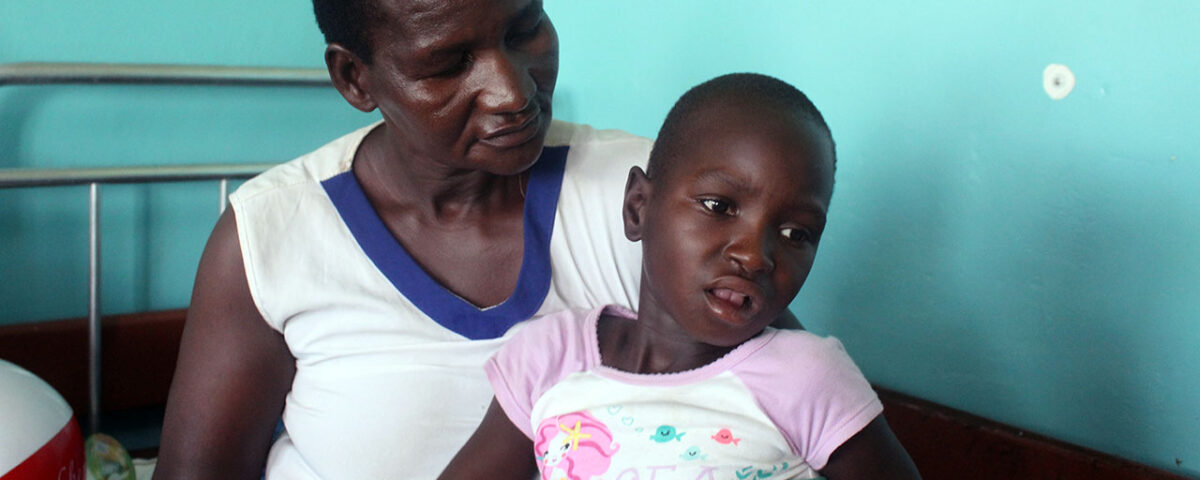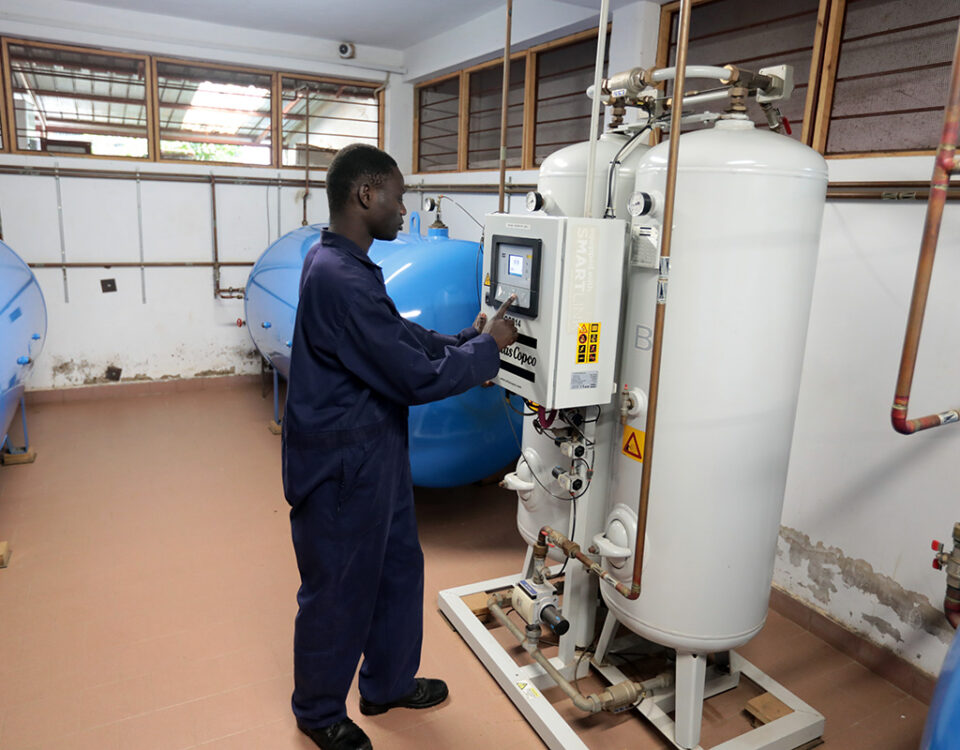The burden of physical malformation takes a great toll not only on the patient but also digs deep into the financial and social well-being of those closest to them. This is the agony of children born with congenital malformations and their parents.
Since 2006, Surgery for Children (SFC), an Italian organisation working to improve the quality of life of children born with surgically correctable congenital malformations, has been partnering with St. Mary’s Hospital Lacor to bring back hope and open a new world of possibilities to these little ones.
In a bid to ensure that every child lives their life to the fullest – free from anomalies, on the 4th of April 2024, a life-changing surgical camp kicked off. Screenings were done and, on the 5th, the life-transforming surgery began.
That’s where we met Akello Orsula, a six-year-old girl from Abongomola sub-county, Kwania district; born to Alum Susan and Otim Dicken.
Akello was diagnosed with imperforate anus at birth.
Imperforate anus is a birth defect that happens while the baby is still growing in the womb. The anus isn’t properly developed and therefore cannot pass out stool normally from the rectum. It occurs in 1 in every 5000 births. It is more common in boys than girls.
From Aduku Health Centre II where she was born, it was noticed a few hours after birth, and a referral to Mbale Regional Referral Hospital was made. A colostomy was done to aid in passing out stool through the abdomen. But this was a temporary solution.
Akello’s condition drained and depleted the social capital the family had in friends and relatives. The once-known family friends and relatives looked at them as social outcasts and they became the recipients of negative attributes.
The dream of sending their daughter to school to shape her future was shattered with every single day that passed by.
“My daughter has no friends. All her agemates keep telling her that her body smells. This is so, so painful,” Alum narrates as she breaks into tears. She said Akello’s friendless life as people avoid her due to bad body odour has been emotionally traumatizing.
As if that wasn’t enough, another bacterial infection added to their misery. To combat the situation, they had to sell off some of their livestock, put on hold the small economic activity of farming they do, and rush back to Mbale yet again in the year 2021.
The news of successful surgeries of children with congenital anomalies had reached the whole country. Akello and her mother rushed to St. Mary’s Hospital Lacor when they heard that the Italian surgeons were coming.
The day came for them to meet the surgeons and they were screened and booked for surgery. Alum confessed to having a mixed feeling of joy and fear but said she trusted the surgeons.
We caught up with Akello and the mother five days after the surgery and she was looking really good and much better. The mother said she is very grateful to both the hospital and the surgical team from Italy for giving them a new lease. They were discharged shortly after.
Surgery for Children first visited Uganda in 2006 when Professor Lorenzo from Napoli University in Italy came to Lacor and met Dr Martin Ogwang the Institutional Director. Mr. Martin explained the problems the hospital faces with children and proposed to Prof. Lorenzo to develop a plan for the future to help with surgeries and to continue year by year in supporting Lacor Hospital.
The first surgery had six patients worked on by two surgeons, two anaesthesiologists, and two nurses. Today the team is above thirty with three operating theatres and the number of patients has grown to more than ten times the numbers first received in 2006.
Another milestone this year has been the team performing the first pediatric laparoscopic procedure in children in Uganda.
“Laparoscopic surgery is very unusual in this country. Maybe in adults, not in children,’’ Professor Lorenzo revealed.
Led by Dr Sergio d’Agostino, the camp lasted three weeks with 219 children screened and 83 operated on.
Dr Sergio d’Agostino and the team told us that the causes of anorectal malformation are not certain but can be linked to environmental factors like pollution and what the mothers come in contact with while still pregnant.


